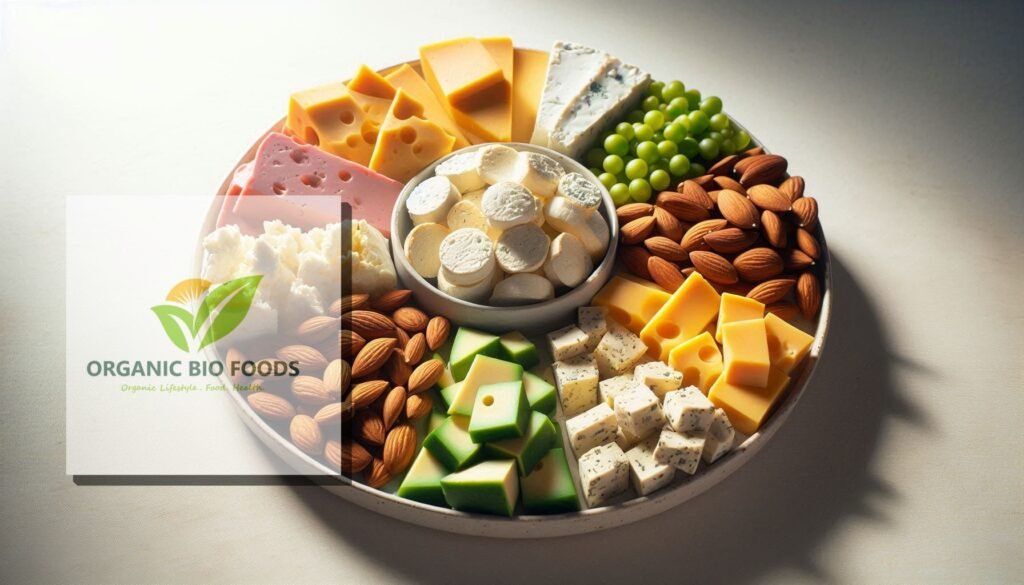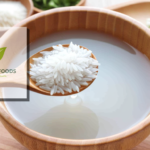Switching to a plant-based diet is becoming more and more popular, with many people choosing to cut down on dairy products for health, ethical, or environmental reasons. One of the most challenging items to replace for many is cheese—its rich, creamy texture and savory flavor are hard to give up! But don’t worry, if you’re looking for plant-based alternatives to cheese, there are plenty of tasty options that can satisfy your cravings.
Whether you’re lactose intolerant, vegan, or just curious about plant-based living, these cheese substitutes are some of the best plant-based alternatives to cheese, and we have listed their benefits, and how to use them in your favorite dishes.
Why Choose Plant-Based Alternatives to Cheese?
Before diving into the alternatives, let’s discuss why many people are switching to plant-based cheeses. There are several reasons why someone might decide to ditch dairy cheese:
- Health reasons: Dairy cheese can be high in saturated fat and cholesterol, which can contribute to heart disease. Some people are also lactose intolerant, which means they can’t digest lactose (a sugar found in milk).
- Ethical concerns: Many people choose a plant-based diet for ethical reasons, such as concerns about animal welfare in the dairy industry.
- Environmental impact: Dairy farming is a significant contributor to greenhouse gas emissions. Reducing dairy consumption can help lower your environmental footprint.
- Dietary preferences: Some individuals simply prefer the taste and texture of plant-based foods or are experimenting with plant-based living.
Now that we understand why plant-based alternatives to cheese are becoming more popular, let’s explore some delicious options!
1. Nutritional Yeast: The Cheese Flavored Secret
Nutritional yeast is often called “nooch” by fans, and it’s one of the most popular dairy-free alternatives to cheese. It’s a deactivated yeast with a cheesy, nutty flavor that can enhance the taste of many dishes.
How Nutritional Yeast is Used:
- Sprinkle it on popcorn for a cheesy snack.
- Add it to sauces, soups, or pasta dishes for a savory, cheesy flavor.
- Mix it with mashed potatoes or vegan butter for a rich taste.
Health Benefits Of Nutritional Yeast:
Nutritional yeast is packed with B vitamins, including B12, which is essential for people on a plant-based diet. It’s also low in fat and calories, making it a healthy option for those looking to reduce their cheese intake.
2. Cashew Cheese: Creamy and Versatile
Cashew cheese is a versatile and creamy alternative to dairy cheese that’s made from blended cashews, water, and various seasonings. It’s known for its smooth texture and rich flavor, making it a great substitute for soft cheeses like ricotta or cream cheese.
How to Use Cashew Cheese:
- Spread cashew cheese on crackers or toast.
- Use it as a dip for veggies or chips.
- Add it to pasta dishes, lasagna, or pizza for a cheesy taste.
Health Benefits Of Cashew Cheese:
Cashews are rich in heart-healthy fats, protein, and essential minerals like magnesium and zinc. When blended into cheese, they create a creamy texture without the cholesterol and lactose found in traditional cheese.
Recipe Tip:
Soak raw cashews for a few hours to soften them before blending. Add nutritional yeast, lemon juice, and garlic for extra flavor!
3. Almond Cheese: A Nutty Delight
Almond cheese is another nut-based alternative to dairy cheese, made from ground almonds. It has a slightly nutty flavor, which works well as a substitute for firmer cheeses like cheddar or feta.
How Almond Cheese Is Used:
- Crumble almond cheese over salads or grain bowls.
- Add slices of almond cheese to sandwiches.
- Melt it on top of veggie burgers or pizza for a cheesy finish.
Health Benefits Of Almond Cheese:
Almonds are high in protein, fiber, and healthy fats, making almond cheese a nutritious option. They’re also a great source of vitamin E, which is good for skin health.
DIY Almond Cheese Recipe:
You can make almond cheese at home by blending soaked almonds with water, nutritional yeast, and your favorite seasonings. Some people like to add herbs like basil or oregano for extra flavor.
4. Coconut Oil-Based Cheese: A Melty Alternative
Coconut oil-based cheeses are becoming more common in grocery stores, and they offer a rich, melty texture that’s perfect for those who miss the gooeyness of melted cheese. Coconut oil is combined with starches and flavorings to create a cheese that melts similarly to dairy cheese.
How It’s Used :
- Melt coconut oil-based cheese on top of pizzas or pasta.
- Add it to grilled cheese sandwiches.
- Use it in quesadillas or nachos for a cheesy indulgence.
Health Benefits Of Coconut Oil-Based Cheese:
While coconut oil-based cheeses tend to be higher in saturated fats than other plant-based options, they don’t contain cholesterol. This makes them a better option for heart health compared to traditional dairy cheese.
Brands to Try:
Some popular coconut oil-based cheese brands include Daiya and Violife, which offer a variety of flavors like cheddar, mozzarella, and pepper jack.
5. Soy-Based Cheese: High Protein and Dairy-Free
Soy-based cheese is another common alternative for people who want to avoid dairy. Made from soybeans, this cheese is often fortified with additional nutrients and has a texture similar to traditional cheese.
How Soy-Based Cheese Is Used:
- Shred soy-based cheese over tacos or burritos.
- Use it to top casseroles or gratins.
- Add slices of soy cheese to sandwiches for a savory, cheesy bite.
Health Benefits Of Soy-Based Cheese:
Soy is a complete protein, meaning it contains all the essential amino acids your body needs. Soy-based cheeses are also often fortified with calcium, vitamin D, and other nutrients, making them a healthy option for those avoiding dairy.
Health Concerns Of Soy-Based Cheese:
Some people may be allergic to soy, so it’s essential to be aware of this before trying soy-based cheese. Additionally, not all soy-based cheeses melt well, so check the packaging for specific instructions.
Source: WebMD: Soy Nutrition Facts
6. Aquafaba Cheese: The Chickpea Wonder
Aquafaba, the liquid leftover from cooked chickpeas, is a magical ingredient in the plant-based world. It can be whipped into meringues, used as an egg substitute, and even made into cheese! Aquafaba cheese has a light, fluffy texture and can be used in a variety of dishes.
How Aquafaba Cheese Is Used:
- Spread aquafaba cheese on bagels or toast.
- Use it as a topping for crackers or flatbreads.
- Add it to vegan cheesecakes for a creamy texture.
Health Benefits of Aquafaba Cheese:
Chickpeas are high in protein and fiber, making aquafaba a low-calorie, nutrient-rich alternative. It’s also cholesterol-free and contains no saturated fats.
Fun Fact:
Aquafaba cheese is often combined with nuts or nutritional yeast to enhance its cheesy flavor.
Final Thoughts
Switching to plant-based cheese alternatives doesn’t mean sacrificing flavor or texture. From nutritional yeast to nut-based cheeses, there are plenty of tasty options that can satisfy your cheesy cravings while also supporting your health, ethical, or environmental goals. These plant-based cheeses are not only delicious but also packed with nutrients, making them a great addition to your diet.
Whether you’re lactose intolerant, vegan, or just looking to cut down on dairy, trying out these plant-based alternatives can be a game-changer. So go ahead, give them a try, and see how easy it is to enjoy a cheesy taste without the dairy!








